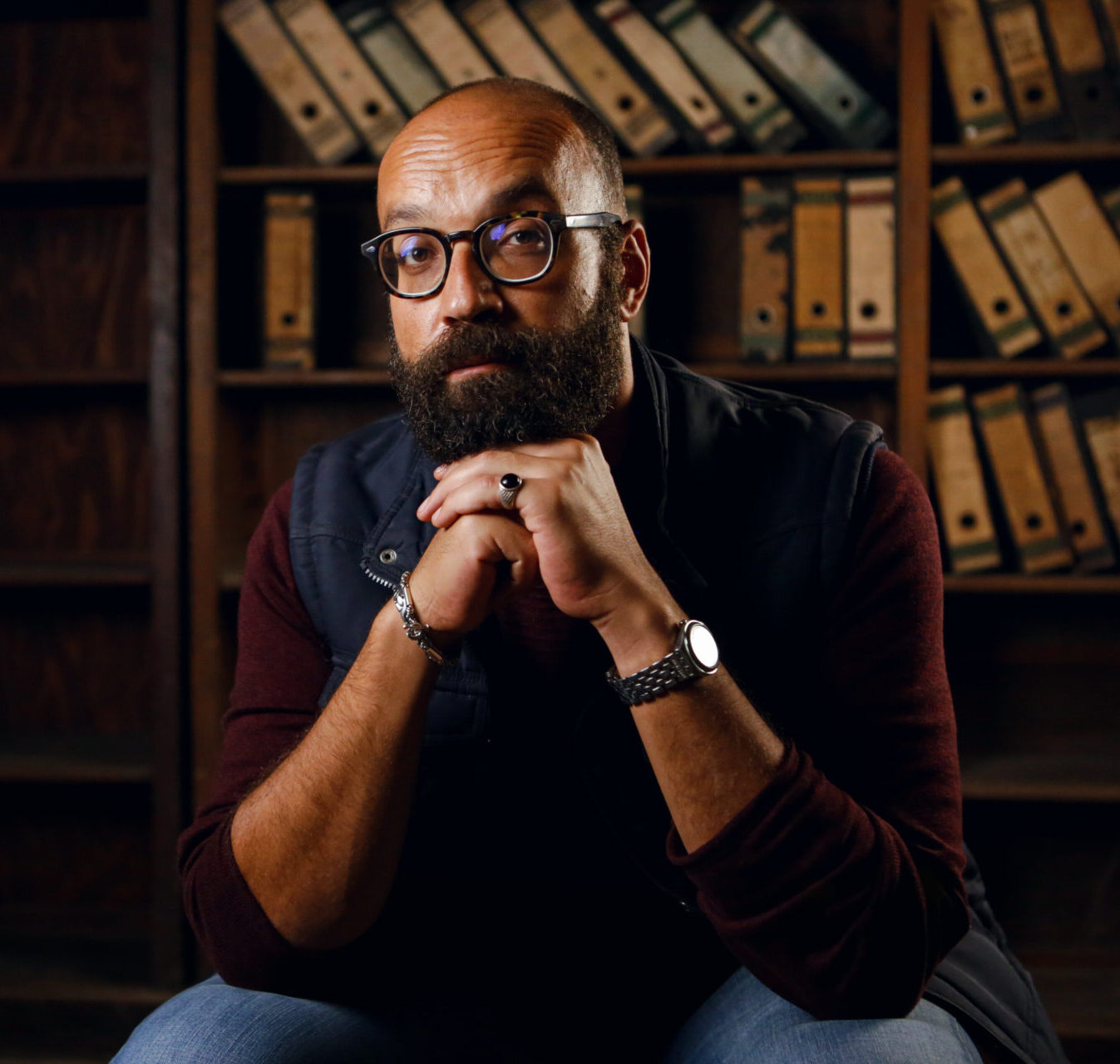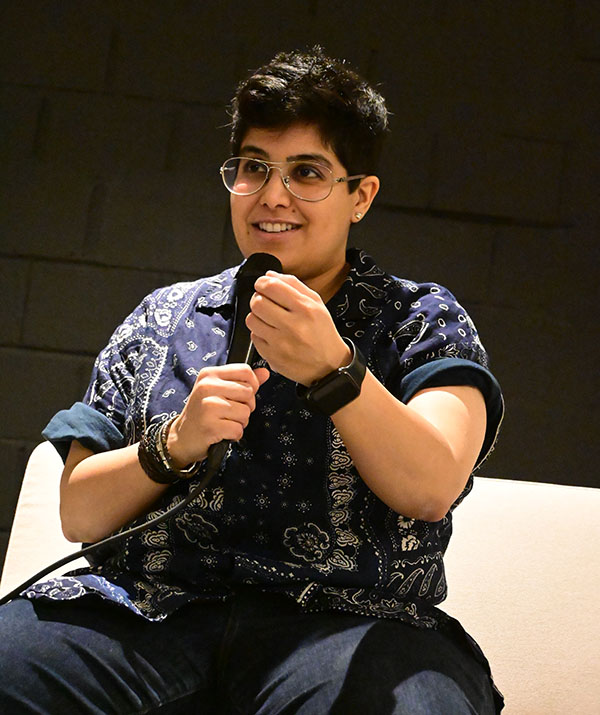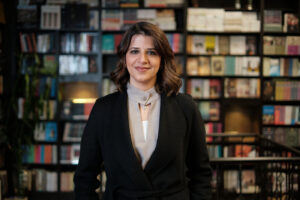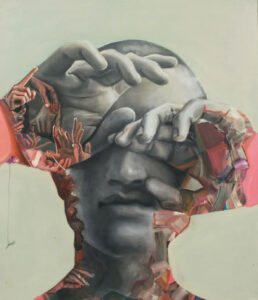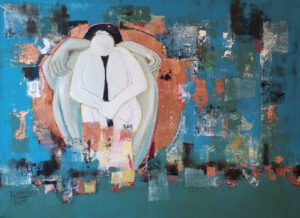In this age of surveillance and heightened security (of the lack thereof), the more things change, the more they become strange, or so finds the confused narrator of this Kafkaesque adventure in a developing country.
The last time I was here, the building was still old, just as I had always seen it — dirty and dilapidated. Dark patches from the mostly worn-off paint still marked the walls, and a constant stench of urine permeated the long, poorly lit hallways. This morning, however, when I arrived, I noticed the presence of shiny glass doors that would automatically open when the person behind them entered a specific number on a small keypad to their right. Surprisingly, there were no security guards present, which was unusual compared to the past, when there were elderly men in uniforms. This time, no one was there.
At first, I thought I had made a mistake and took a few steps back. But I was on the right street. This was the building, and these were the same long, rectangular windows despite their altered appearance — they were now adorned with polished, reflective glass. It was gleaming and immaculately clean.
I knew that a comprehensive development process was taking place throughout the country, but I didn’t quite understand what “development” meant, exactly. I used to see the word displayed on huge billboards everywhere, and I remember that we used to make fun of the slow government projects and the way they were often mismanaged. Still, it seems that this “development” has indeed spread, making it difficult for people like me to keep up.
I didn’t know how to enter the building. While I knew I needed a specific PIN to open the door, I was unsure which one to use. There was no one I could ask for help, so I approached the keypad, a small panel with numbers ranging from one to nine with the zero button taking up more space than the rest. Just below the keypad was a red knob with an image of a horn, which I assumed was for communication with the operator inside the building. Feeling confused, I pressed the button and leaned closer to the keypad, ready to respond to any inquiries directed at me from the speakers. But as soon as I touched the red knob, a mechanical female voice said, “Hello, press a number … If you want to enter the department …” The sound of a speeding car passed behind me, and the sudden clap of thunder drowned out the number she mentioned. I was momentarily stunned, and rain began to pour down heavily, causing me to lose track of the robotic woman’s voice.
So I moved my ear closer to the panel and touched the horn button again.
“Hello … press a number,” she said. This time, I paid attention to the sequence of digits she uttered, but didn’t know which department I should go to, as none of the names sounded familiar.
I waited for a human voice with which to communicate directly, but the message ended and only the sound of the downpour remained. Then, I looked around, hoping to see someone passing by whom I could ask for help, but the whole street was empty.
I pressed the horn button for the third time. It seemed to me that the mechanical voice that came out was grumbling faster than before. I couldn’t hear it clearly, and once again, fear and confusion overwhelmed me, so I decided to choose any department number and enter it into the keypad, hoping to gain access to the building — for I was certain that, once inside, I’d be able to speak with someone directly.
Once I entered the number I had heard, the door opened. I approached it hesitantly, but as soon as I passed through, it closed behind me, and all traces of the faint daylight vanished. I found myself in an ample lobby that looked nothing like the familiar old space I knew so well. Now, everything was bathed in a bluish-white light. There was a security office where the old potbellied guards used to sit, and a large map of the country with several spots that flashed in different colors; each individual flash of light revealed a different phrase in a foreign language. I surmised that these lights were connected to the “development” projects people were talking about.
I remembered that there used to be a staircase on the right side, and facing this staircase was the elevator door where employees usually gathered. Now, in front of me, two ascending escalators led to massive doors, presumably on the third floor of the building I used to know, and a wide hallway stretched between the two escalators with numerous doors on either side. Each door had a board with alphanumeric acronyms that were more difficult to decipher than actual words. And beside each door was a small keypad, which made me realize that to complete my task I had to already know the PIN of the specific office responsible for my case.
Across this whole expanse, there was no one I could ask for help, so I approached the second door to my right and knocked on it; but the door was so thick that I couldn’t hear my knock resound on the other side. I tried other doors, but they all had the same design and sound-absorbing properties. I looked down at the long hallway filled with doors, not knowing what to do next. Then it occurred to me that I could search for the restrooms. Perhaps I would meet another person there. Surely, humans haven’t gone extinct yet. They must be out here still, for the city is still bustling, and employees must still be working behind these doors. I just didn’t know how to reach them.
Wouldn’t it have been more useful to hang a map of this building on the wall instead of a map of the country filled with flashing lights and foreign phrases? I continued moving through the hallway, hoping to come across someone. But although time passed, the scene remained unchanged. The hallway appeared to be endless, and the doors infinite. I felt weary, and began to wonder if this building was connected to others, for I failed to comprehend how this feeling of never-ending vastness was engineered.
I decided to return and take one of the escalators I had seen earlier. However, when I swiveled around, I realized that I was now looking at the same scene that had been in front of me before I’d turned — the long hallway with doors on either side. I looked to my left and right, but the scene remained the same. Maybe the illusion was caused by my fatigue.
I decided it would be best to leave now and return after gathering information to help me navigate this building, so I started moving in the opposite direction from where I thought I had come, but nothing changed. The doors seemed infinite, and the faint bluish-white light still illuminated the path. As I looked at the shiny floor of the hallway, I couldn’t help but wonder if it was moving like a treadmill. It seemed that I was stuck in the same spot without making any progress. But why did the door I had passed through earlier move away?
I felt dizzy, and my mouth was dry. Why hadn’t anyone come to assist me? Most likely, this entire building was under surveillance. Had the government created all of this just for entertainment? Perhaps there were employees sitting in front of screens right now, laughing at the way I was walking and knocking on doors. I leaned against the wall, contemplating my next course of action.
Then I heard a mechanical sound coming from the other end of the hall. When I turned around, I saw three men inside a small vehicle speeding towards me, and I felt a sense of relief wash over me. Once the vehicle came to a stop, two individuals dressed in uniforms disembarked. They resembled security guards; their uniforms were tight on their bodies, however, and they were wearing masks. Before I could say anything, one of them said, “You are accused of trespassing and tampering with state property.” I was too shocked to respond. My mouth remained open as strong hands grabbed my arms and threw me into the vehicle before I fell unconscious.




